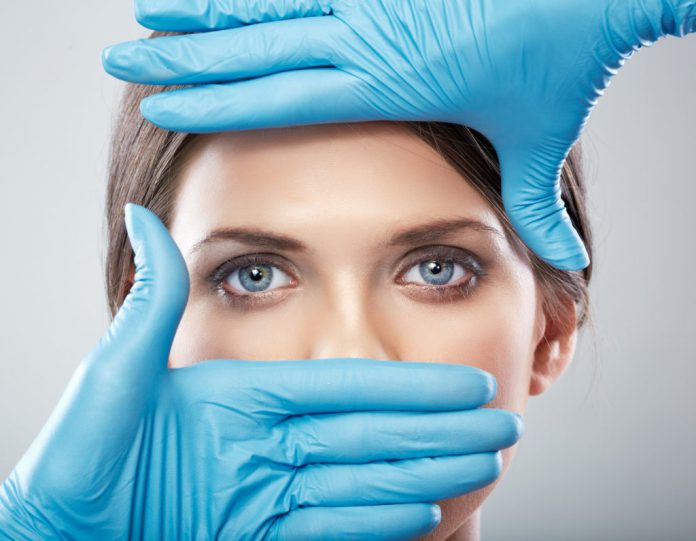2019 was an exciting year for Medical Aesthetics, a year of cosmetic self-reflection focused on selfies and social media, driven by controversies around buttock augmentation and the breast implant recall. At Guided Solutions we keep our ear to the ground and provide daily updates on the most important aesthetics industry developments across innovations, clinical trials, funding achievements, mergers and acquisitions, and regulatory approvals with our global community of medtech professionals.
Here is our editors’ choice of the most important events that shaped the aesthetics world throughout the year:
Aesthetics devices that changed the world in 2019
A groundbreaking new approach to sculpting the abdomen with Emsculpt –the first and only non-invasive body shaping procedure that simultaneously addresses both muscle and fat was introduced in December this year. Bringing an entirely new technology to the category, Emsculpt utilizes HIFEM® energy to induce powerful muscle contractions which builds muscles and burns fat.
Back in April InMode rolled out ‘AccuTite’, the smallest Radiofrequency Assisted Lipolysis (RFAL) device for precision fat reduction or skin contraction in the face and body. With its sub-millimetre cannula, AccuTite enables focal RF contraction without excisional surgery. There is little to no visible scarring and minimum downtime with AccuTite. The procedure takes less than 15 minutes under local anaesthesia. Results can be seen immediately with continuing improvements for several weeks following treatment.
A novel cordless helmet for hair restoration was represented by Theradome. The company explains that the device contains 40 nanometre proprietary lasers which aim to flood coherent light across the scalp to ensure that affected areas are treated simultaneously. According to Theradome, the laser light penetrates the scalp at 3-5mm to stimulate the base of the hair follicles and promote hair regrowth.
Clinical Studies
The results of two studies conducted by pharmaceutical company Galderma (UK) Limited in June, have demonstrated high patient satisfaction for the use of Azzalure (AbobotulinumtoxinA), its botulinum toxin type A product, in the glabellar complex.
The first study, titled the ANGEL study (n=533), took place in 66 centres across four countries, and demonstrated that 97.4% of patients were satisfied or very satisfied with the aesthetic outcome with Azzalure (AbobotulinumtoxinA) at three weeks, and 89.6% were satisfied or very satisfied at four months.
The second study, the APPEAL study (n=135), took place in 13 centres in six countries and highlighted that 97% of patients treated were satisfied or very satisfied three weeks after their first Azzaure (AbobotulinumtoxinA) glabellar line treatment and this figure increased to 99.3% by the third treatment.
A study presented in November at the America Society for Dermatologic Surgery annual meeting shows that combining the use of gold microparticles with laser-mediated photothermolysis and topical retinoids was associated with a 61% reduction in inflammatory lesion count at three months amongst patients with mild to moderate acne vulgaris.
S-based dermatologist Dr Ashish Bhatia and colleagues conducted a US registry study of 75 patients with mild to moderate inflammatory acne. Patients were pre-treated with a topical retinoid, such as tazarotene, adapalene/benzoyl peroxide, tretinoin or adapalene, for at least two weeks prior to treatment.
Mergers & acquisitions
Some of the global leaders within the Medical Aesthetics field made strategic acquisition deals through the year and enhanced their force together to achieve more in the future.
Back in June AbbVie Inc. and Allergan plc entered into a definitive transaction agreement, under which AbbVie will acquire Allergan. Allergan Shareholders will receive 0.8660 AbbVie shares and $120.30 in cash for each share that they hold, for a total consideration of $188.24 per share.
In November Restoration Robotics changed its name to Venus Concept Inc. Following the completion of the merger with Venus Concept, Restoration Robotics moved its corporate headquarters to Toronto, Canada.
Regulatory highlights
One of the most important clearances achieved over the past 12 months belongs to Lutronic, who received FDA clearance of the Lutronic Genius™ platform for radiofrequency microneedling. The Lutronic Intelligent Care™ products incorporate “smart” features to help practitioners provide outstanding care.
In December, Venus Concept announced their CE Mark and Health Canada License for their Epileve laser hair removal solution. The Venus Epileve is a portable and versatile tabletop device that offers two modes of operation (SLIDE and PULSE) and a real-time cooling system aimed at ensuring patient safety and comfort.
Follow our blog for latest news from the world of medical aesthetics.
Guided Solutions is the executive search partner of choice for the global medical aesthetics industry, with a continually expanding network of medtech aesthetics professionals across the entire product lifecycle.
Get in touch today to make sure your next hiring decision is made the right way.



